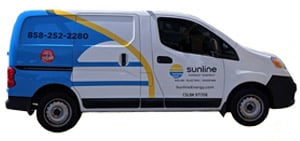Yesterday, we looked at the growing popularity of solar. The technology has truly become mainstream – largely due to falling prices.
10 years ago, you could only buy panels through installers or specialty stores. Now, you can take advantage of solar panel sales at major retail stores like Best Buy and Home Depot. You can even find cheap panels on Amazon.com.
As a result, pretty much anyone can go solar. And that’s great news.
But as discussed yesterday, there’s a dark side of this “cheap” solar craze. And many companies within the industry (both installers and retailers) are eager to exploit consumer ignorance.
Broadly speaking, there are 3 different ways to get solar panels up on your rooftop:
- Solar panel leases. This is considered to be the cheapest option since there are no upfront costs. You get a brand new installation for free.
- Do-it-yourself (DIY) solar panels. This is the next cheapest option since you don’t have to spend any money on labor.
- Outright ownership. Many consider this to be the most expensive option since you pay for all equipment and labor costs yourself.
Over the next 3 articles, we’ll look at the true cost of these approaches and explore which option is indeed the “cheapest.”
Let’s start with DIY solar. This is the easiest approach to debunk.
DIY Solar Panel Sales – and the True Cost of Your Installation
Here’s the scenario. You find some affordable, quality solar panels online. You download a few manuals and install 5kW of solar capacity on your rooftop. The entire project takes 1 or 2 weekends. And your total costs were about $6,000.
Now, you have lower electricity bills for the next 10, 15, or even 25 years.
That’s the good news.
The bad news, however, is that you overpaid for your system. And here’s why.
It’s true that home solar kits are quite cheap upfront.
But.
Because your system wasn’t connected to the utility grid by a licensed professional, it doesn’t qualify for a number of federal, state, and local incentives. You’ll have missed out on a number of awesome programs that could have helped reduce the upfront cost of your installation. Worse still, you can’t take advantage of San Diego’s net metering program, which allows you to sell excess electricity to the utility company at a profit.
With the net metering program, the average payback period for a solar installation in California is about 4 to 6 years (the payback period is the length of time for your electricity bill savings to fully cover the upfront cost of your installation – think of it as the breakeven point).
Without the net metering program, however, your payback period could take 10, 15, or even 20 years – assuming that you installed the panels properly.
In other words, your DIY solar photovoltaic (PV) system is actually more expensive than if you had hired a professional. True – you have fewer upfront costs (since you save on labor). But your panels deliver much lower returns over the long run.
Other Dangers of DIY Solar Panel Sales
Lower ROIs is only the beginning of your troubles. Home solar kits offer other disadvantages as well:
- Installing solar panels on your own is dangerous. After all, you’re working with high voltage electrical equipment.
- The installation costs are deceptive. You actually need a number of tools and gadgets that you’ll have to buy separately. So a $6,000 home solar kit might end up costing you $8,000 or more once all is said and done.
- The selection is limited. DIY solar panels sell on ease, convenience, and cost – not endurance and power. As such, you’re usually not getting the best components that money can buy. It’s similar to buying a preconfigured computer versus building one a la carte.
We could go on and on about the many disadvantages of home solar kits. But if you want to learn more, check out these articles:
- The Hidden Dangers of Home Solar Power Kits
Tune in Tomorrow When We Look at Solar Power Leases
Cheaper isn’t always better. And as we’ve just learned, it’s not always cheaper either.
We’ll continue the discussion tomorrow when we look at the rise (and hidden dangers) of solar panel leases.
In the meantime, don’t hesitate to contact us with any questions. All solar consultations are 100% free.

